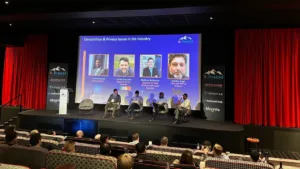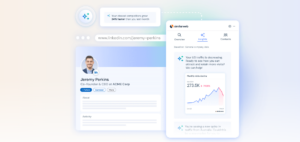By Marek Olczyk, Team Leader and AI-enthusiast at Future Processing
As an industry that finds itself in a constant state of growth and flux, there is ongoing speculation regarding Artificial Intelligence (AI) and consumer ethics. Whether it’s a concern about job automation, which is expected to impact 30% of jobs in the UK by 2030, concerns over salary implications, or the biases some have been proven to hold, AI has become an industry disruptor.
Another growing concern is digital ageism, a form of age discrimination that manifests itself in the technology industry, especially when considering access and understanding of platforms and product design. It has been estimated that one in five people aged 65 and above do not use the internet, with the ageing population feeling digitally excluded. Not only does digital ageism shape whether older adults adopt new technologies, but it also influences how new technologies are developed and marketed, and the story remains similar in AI.
Rise of digital ageism
Artificial Intelligence is transforming several industries, such as healthcare, insurance, education and finance. It holds great promise for businesses and consumers alike, but future technologies powered by AI need to take the next step in ensuring older adults are fully involved and educated in the processes and systems.
Digital ageism grows when age-based biases are magnified by technology, and in the case of AI, the challenge is centred around the lack of engagement from the ageing population, as well as the limited understanding of its capabilities. A recent survey conducted by Future Processing revealed that 73% of UK respondents aged 50 and above believe that technology companies need to offer more support to help customers understand AI. So, what are the steps we can take when working toward a future without digital ageism?
Educating all customers
AI is changing the way we consume, the way we work and the way we gather data. Chatbots, for example, are found on most websites and their usage is expected to grow to 80% in medium-sized businesses. Virtual assistants are also readily available, and can even be found in automatic fraud detection.
Educating customers on where AI is already being used can help to demystify its presence in our daily lives, providing clarity for the ageing population. Presenting AI as brand-new technology in the industry does little beyond stirring up excitement for investors, whereas increasing transparency prevents people from feeling defeated when being presented with this technological evolution.
By providing consumers with discovery and informational pages on the ways AI is changing how we search for information, like Future Processing’s Discover AI page, consumers are able to get a bite-sized understanding of the ways AI will change their everyday lives and interactions with technology.
Businesses championing AI have recently focused on consumer education. Google, for example, has started providing AI workshops that help customers and businesses assess their readiness for the scale at which AI will impact their daily operations. What’s more, Capgemini recently reported that the majority of consumers trust AI for tasks like financial planning (53%), medical advice (67%) and career advice (66%), but they are still largely uneducated on the dangers this technology can pose, like fraud, scamming, and phishing attacks.
This is especially concerning since AgeUK estimated that an older person was a victim of fraud every 40 seconds with online scams costing elderly people in the UK £1.2m a day in 2023.
To achieve AI literacy amongst advanced-aged consumers, technology companies need to do more than just hosting webinars and workshops. By showcasing real-world examples of AI, more specifically generative AI, and distributing resources on how AI works and how we can harness its power directly, only then can a consumer truly grasp how industry-changing this technology is.
Creating a more inclusive industry
Whilst the benefits of AI are clear to businesses, many customers are still grappling with understanding its potential. Organisations like OpenAI and Google offer personalised AI experiences commercially, with companies like Spotify already experimenting with betas to improve customer experience. However, consumers’ understanding of this technology is unclear, especially for older people.
Whilst the market is expected to reach a value of $1 trillion in 2028, consumers remain sceptical. Those uneducated in the industry would be forgiven for thinking AI was simply a technology shortcut, given the pessimistic media coverage of the technology. However, by educating consumers of an advanced age that, for the majority of cases, AI isn’t being used to stimulate near or advanced human intelligence, but rather aid humans, we can work toward a future that welcomes people of all ages in experimentation with emerging technologies.
Companies at the forefront of the AI transformation find themselves in a unique position. While it, in some cases, benefits them to keep AI technology mystified for wider society, developing and educating the ageing population about the benefits this technology brings can progress the industry even further. Such is the issue with digital ageism, many older consumers are overlooked but they are the very generation that lay the foundational technology for AI to exist today.









